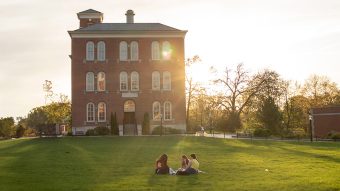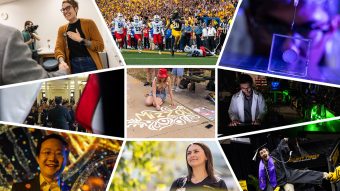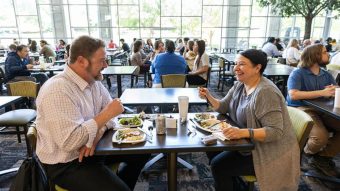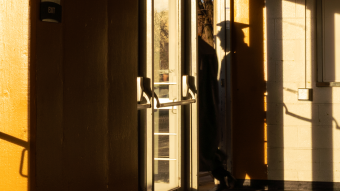By Jade Elwess
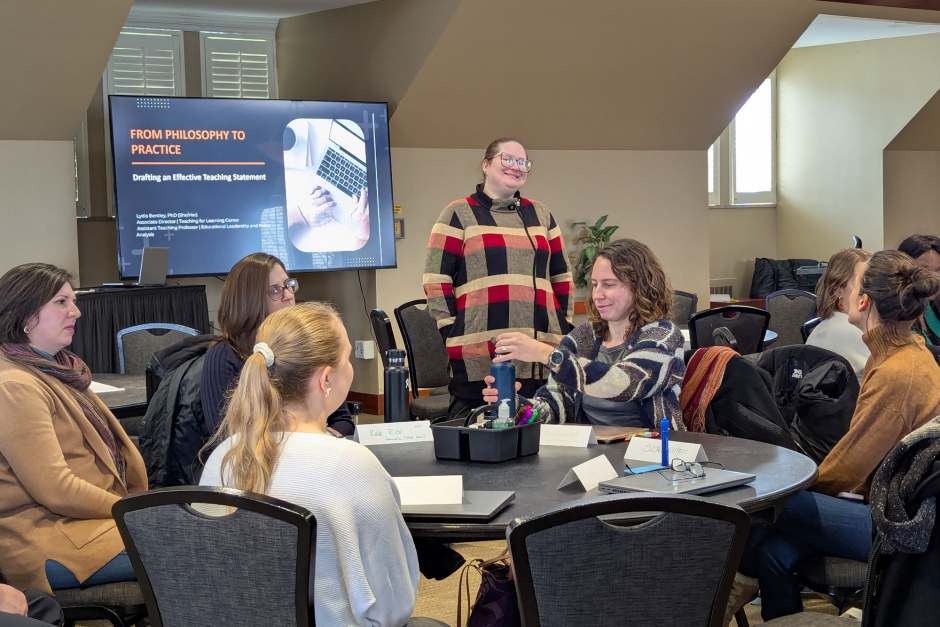
April 18, 2025
Photo by Jade Elwess
Starting out as a new professor — whether tenure-track or not — can be overwhelming without support. That’s where the Learning and Expanding Abilities for Professoriate Cohort Fellows Program (LEAP) comes in. LEAP is a professional development that helps early-career faculty develop their mentoring, teaching and research skills. It also comes with a network of colleagues from other disciplines who are at similar stages in their careers.
Clarissa Durie, assistant professor in the Division of Biochemistry, is a member of the first cohort, serving from 2024-26. Her department has lots of assistant professors who will be experiencing the tenure process and early career challenges at the same time, without a lot of associate professors who had experienced these same issues more recently to guide them through it.
Because of this, she found it useful to be able to see how other departments are approaching issues such as workload, annual review, and strategic planning. Because LEAP is a 2-year program, Durie appreciates the opportunity to get more in depth with the topics through continuing small group conversations.
“I think it’s an investment of time in your own career progress and I think it’s worth it,” Durie said.
Susana Quiros, assistant teaching professor in the Department of Public Health, is also a member of the first LEAP cohort. She encourages faculty to join the program early, before they are up for promotion and/or tenure. Having colleagues in other departments to share experiences with and learn was beneficial, she said.
The program doesn’t just offer community—it also includes practical support. Each participant receives $1,000 annually to put toward professional development or to work with an external mentor.
As a non-tenure track faculty member, Quiros also appreciated being able to connect with others in similar roles. That peer connection is key, said Jennifer Fellabaum-Toston, a teaching professor in Educational Leadership & Policy Analysis and senior associate dean for the College of Education and Human Development who is the faculty fellow in the Office of the Provost’s leading the LEAP program this semester.
She encourages faculty who are interested in the program to talk to their department chair about when it makes most sense to participate.
“I was fortunate to have strong mentorship and solid onboarding in my department when I started as a faculty member,” she said. “Even with that, there were still aspects of faculty life that I didn’t know I needed to know about or that I would benefit from knowing about sooner.”
She thinks the cohort model is a unique opportunity for newer faculty across campus to get together regularly and discuss common issues they all are facing.
“I hope that after completing the program, participants will feel more connected to campus, more confident as a faculty member, and have a solid plan for what they would like to focus on in the 2-3 years following the program,” Fellabaum-Toston said.
View a list of the 2025-2027 cohort of the LEAP Fellows Program.
Read more from the Office of the Provost